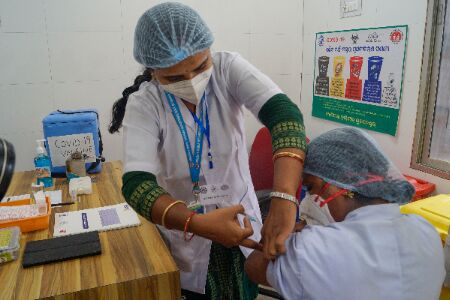56.13% people in Delhi have antibodies: 5th sero survey

New Delhi: With the completion of the fifth sero survey between January 15 to 23 in the Capital, the results have shown that 56.13 per cent of those tested had developed antibodies against the novel Coronavirus.
Talking about the antibody prevalence amongst the masses here, Delhi Health Minister Satyendra Jain said that this was the biggest sero survey to have been carried out in the country with a sample size of 28,000, which included 100 samples from each municipal ward.
According to data accessed by Millennium Post, the least prevalence out of the 11 districts was found in the North district with 49.09 per cent of the samples collected from there testing positive for antibodies while the highest prevalence was in the South-East district, which stood at 62.18 per cent.
Delhi's South-East district was also one of the first districts that turned into a COVID-19 hot spot due to several cases coming from the Nizamuddin Markaz area. Except for the North district, all other 10 districts in the city have shown a sero-prevalence of more than 50 per cent and out of the ten, six have a sero-prevalence of more than 55 per cent.
The health department of the Delhi Government along with assistance from the Maulana Azad Medical College conducted the sero survey using a different technology, a health official said.
"We have used CLIA technology, which is a more sensitive technology than ELISA, and the samples have been tested at ILBS so that there is uniformity across the city," Dr Nutan Mundeja, director-general of health services (Delhi state health mission) said.
Jain said, "I don't think we should get into the debate of herd immunity now. This is a new form of virus or disease, we should not get lax with our precautionary measures because in October, we had thought the virus was brought under control, but then we got the third wave," he said.
"The cases have gone down considerably and have been lower than 200 since the last 10-12 days. The positivity rate is even lesser than 1 per cent since the last one month," he added.
However, experts have warned that it is safer not to make conclusions of herd immunity just yet as there are too many variables that need to be accounted for.



